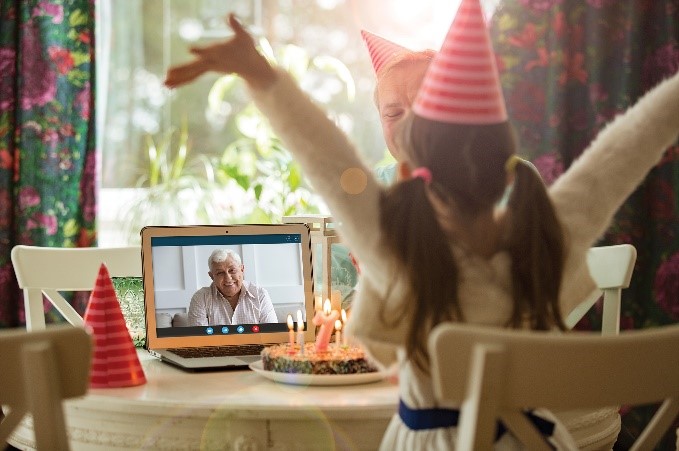Coronavirus Update
Novel Coronavirus COVID-19 Update
Information was Updated March 25, 2021
The American Health Care Association and LeadingAge, two associations focused on long-term care and aging services, recently introduced a report focusing on the devastating effects of COVID-19 in our country’s nursing homes. CARE FOR OUR SENIORS ACT: Improving America’s Nursing Homes By Learning from Tragedy & Implementing Bold Solutions For The Future.
We are sharing the report so everyone can gain insight into the challenges faced by long-term care communities and the recommended path forward. We appreciate your continued support as we work together to protect our residents and one another in the fight against COVID-19.
March 9, 2021
This week, we commemorate the one-year milestone of living and working through the COVID-19 pandemic. During this year, our team members have come together like never before to care for our residents and one another. The families of our residents have been so supportive even when they themselves have been so challenged with restricted or limited visitation.
In the following video residents and team members share a little about their journey through the pandemic.
Commitment to Safety and Wellbeing
Based on Pennsylvania’s recently introduced, 3-Step Process, Presbyterian SeniorCare Network is rolling out its plans to ease COVID-19 restrictions. Click on the link below to learn more.
At Presbyterian SeniorCare Network, our utmost priority is the health and well-being of our residents, patients, volunteers, team members, families, visitors and the community.

Click on the image above to watch our heartfelt video
This general information is being provided for the benefit of everyone. Expect to receive information directly from YOUR Presbyterian SeniorCare Network community or program leaders for any specifics that may be appropriate.
This information will address the issues surrounding the Coronavirus (COVID-19) and its implications within and surrounding our continuum of care.
Presbyterian SeniorCare Network is committed to full transparency related to COVID-19 testing and outcomes among our residents, patients and staff. Beginning on May 19, 2020, test results for all care communities across our Network can be found at the link below.
This information will be updated on a regular basis, and we invite you to check back as often as you’d like. Keep in mind that the data shown is just for each day and is not a running cumulative total since the beginning of any reporting period.
To learn about resources that can help everyone stay well and engaged during these times, check out our Connected at the Heart page.
Be sure to watch a very special thank you message for our team members across the Network from Paul Winkler below:
Current Visitor Guidelines
The COVID-19 situation changes regularly, and we are monitoring it closely. It is a global pandemic and an unprecedented public health emergency requiring all of us to accept extraordinary sacrifice and inconvenience.
We are following the guidance from the federal government, the Centers for Disease Control (CDC) and Centers for Medicare & Medicaid (CMS) as well as state and local agencies, which continues to be updated as more is learned. The current guidance is to maintain heightened precautionary measures in order to protect the most vulnerable.
We have eased visitation restrictions. This includes independent living communities as well as “care” communities that range from skilled nursing/rehabilitation centers to assisted living and personal care communities.
Visitation plans have been developed for ALL “Care” Communities.
- We follow federal, state and local guidance about when we may be permitted to offer inddor and outdoor visitation
- Please click here to learn more specifics about prescheduled visitation guidelines for each of our “care“ communities.
- Extraordinary circumstances, such as end-of-life and compassionate care, will be handled on a case-by-case basis. Please contact the Administrator or Director of Nursing for the specific community where the care is being provided to discuss special visitation accommodations.
HELPFUL RESOURCES FOR UP-TO-DATE INFORMATION
We have some general information listed below, but for the most valuable, up-to-date resources. Other helpful resources can be found on our Connected at the Heart resource page.
- World Health Organization
- Centers for Disease Control and Prevention
- US Department of Health & Human Services
- Centers for Medicare and Medicaid Services
- Pennsylvania Department of Health
- Most up-to-date information on COVID-19 for Pennsylvanians
- Guidance for wearing a mask
- PA Department of Health issues Frequently Asked Questions for Families of Persons in Skilled Nursing Centers
- 6/5/2020 – Wolf Administration: Long-Term and Congregate Care Restrictions Will Remain in Place to Protect Vulnerable Populations as Pennsylvania Reopens
- Mandatory mask-wearing order for PA takes effect on July 1, 2020 until further notice
- Allegheny County Department of Health
- US Postal Service Coronavirus Statement of March 17, 2020
- The CDC Coronavirus webpage for those at a higher risk of complications
- AARP’s News and Guidance on Coronavirus
- The Pioneer Network Resource Library
- The Alzheimer’s Association’s Coronavirus (COVID-19) Tips for Dementia Caregivers page
- COVID-19 Guide for Older Adults
- Coronavirus terms: A glossary to understand the pandemic
Additionally, you may be aware that the Pennsylvania Department of Health is reporting COVID-19 cases for long-term care communities under the section called, COVID-19 Cases Associated with Nursing Homes and Personal Care Homes to Date, on its website. Here is the link to that information: https://www.health.pa.gov/topics/disease/coronavirus/Pages/LTCF-Data.aspx



